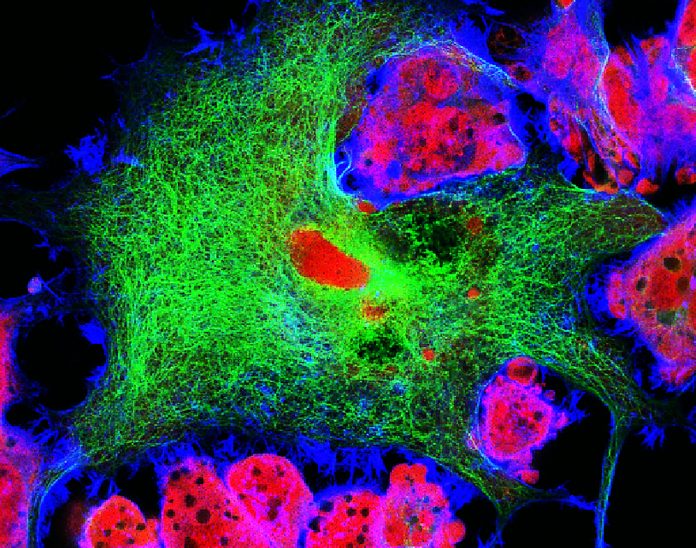
An international team of clinical researchers led by Children’s Hospital of Philadelphia (CHOP), Winship Cancer Institute of Emory University, and the New Approaches to Neuroblastoma Therapy (NANT) Consortium, has released data from a Phase I study showing that the tyrosine kinase inhibitor (TKI) lorlatinib is a safe and effective treatment for treating high-risk neuroblastoma.
“The results of this study are exciting for patients with high-risk neuroblastoma whose tumors have a genetic alteration in the ALK gene and who have lacked effective targeted treatment options for this often lethal cancer,” said senior study author Yael P. Mossé, MD, professor of pediatrics in the Cancer Center at CHOP. “This study is the culmination of decades of work that began at CHOP with our initial discovery of ALK mutations in neuroblastoma in 2008.
The findings from the research, published Monday in the journal Nature Medicine, have prompted changes to other ongoing clinical trials. In a Phase III Children’s Oncology Group (COG) trial, they have incorporated lorlatinib for newly-diagnosed ALK-driven, high risk neuroblastoma, and also a planned amendment to the European Phase III clinical trial being conducted in collaboration with the International Society of Paediatric Oncology European Neuroblastoma (SIOPEN).
The Phase I NANT trial of lorlatinib found that when given alone, or in combination with chemotherapy, both were safe and tolerable among pediatric, adolescent, and adult patient groups with relapsed/refractory neuroblastoma and showed clinical activity across patients of all ages with three hotspot ALK mutations that are specific to neuroblastoma. It was also shown to be effective in patients who had received treatment previously with other ALK inhibitors.
When given alone, 30% of patients under 18 years old responded to lorlatinib and 67% of adults responded. Patients younger than 18 responded at significantly higher rates—63%—when provided in combination with chemotherapy. The investigators observed that the younger patients treated with lorlatinib alone, especially those with an amplification of the MYCN oncogene, had fewer responses than adult patients. They suggest that adding the drug to the therapy regimen as soon as possible for patients with ALK alterations could be vital in prevent disease relapse.
“The profound clinical responses seen in this trial, in a highly therapy-resistant, relapsed pediatric cancer population, allows us to now offer lorlatinib into frontline care for newly diagnosed patients with ALK mutated or amplified neuroblastoma, a population known to have inferior survival with standard-of-care, high-risk therapy,” said Kelly Goldsmith, MD, co-leader of the Discovery & Developmental Therapeutics Program at Winship Cancer Institute of Emory University, and the study’s first author and co-chair of the trial. “This trial will truly change the paradigm of clinical care and improve outcomes for our neuroblastoma patients.”
The encouraging results are built upon a discovery by Mossé and colleagues, in 2008, that the ALK gene causes the majority of rare, inherited neuroblastoma. Research over the ensuing years have delved into the role of the ALK gene in the development of nonhereditary neuroblastoma and the finding that 20% of newly diagnosed high-risk neuroblastoma is ALK-driven and much higher in patients with relapsed disease.
Early work on targeting neuroblastoma was conducted with the drug crizotinib which was already approved to treat a subtype of lung cancer driven by the ALK gene. While the trial with crizotinib ultimately led to an FDA approval for pediatric patients with relapsed/refractory ALK+ anaplastic large cell lymphoma and for pediatric patients with ALK+ unresectable/relapsed inflammatory myofibroblastic tumors.
While crizotinib was proving an effective treatment against other ALK-driven cancers, a Phase II COG clinical trial showed a response rate of only 15% in neuroblastoma, results which indicated the need to find a new, more effective ALK inhibitor. After screening a number of candidates, the team settled on lorlatinib, as the potentially most effective candidate.
“This study is the culmination of decades of work that began at CHOP with our initial discovery of ALK mutations in neuroblastoma in 2008,” said Mossé. “The difficulties we experienced in targeting ALK with crizotinib in neuroblastoma motivated us to find a more potent ALK inhibitor. We started testing lorlatinib in the lab in 2013 and, as a result of this clinical trial, lorlatinib has now moved upfront in a pivotal COG Phase III trial, which will hopefully support eventual FDA approval of this treatment. This serves as a paramount example across all pediatric cancers of forward and reverse translation, where we learn from the science and from our patients and make decisions in real-time to fast-track development of new agents when there is potential for substantive impact.”













